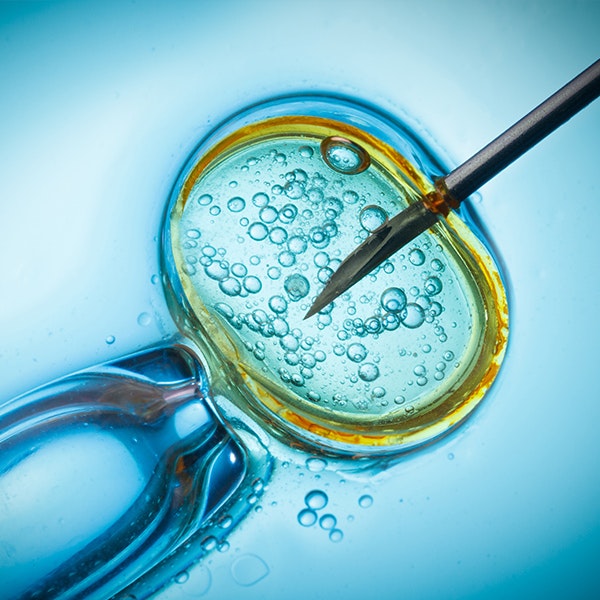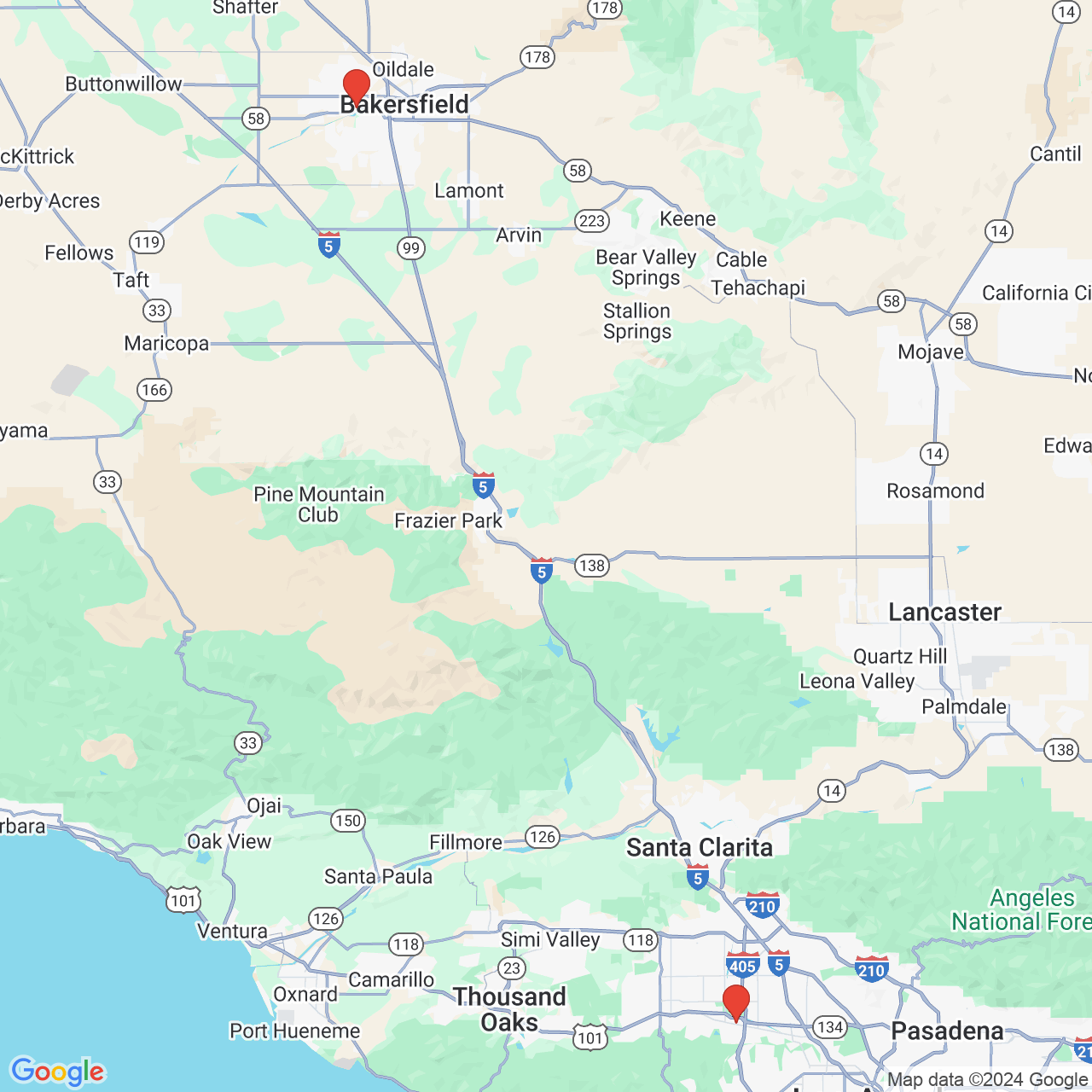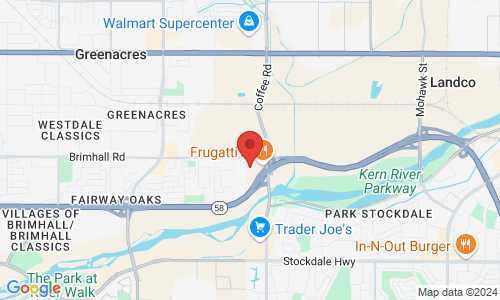Fertility Testing
If fertility testing is your first step to becoming a parent, we understand that it can feel intimidating. But it can also be empowering.
Through testing, Los Angeles Reproductive Center can uncover what is holding back your dreams and chart a path forward.
Learn how our advanced fertility tests help patients who visit our Encino and Bakersfield, CA, fertility clinics grow their families.
Start Your Journey: Accurate Fertility Testing and Diagnosis
Is it the right time for fertility testing? Should we just try a little longer to get pregnant? What should I do?
The board-certified fertility specialists at the Los Angeles Reproductive Center (LARC) can empower you to move forward toward your goal of parenthood by providing the answers you seek.
Our double board-certified fertility specialists, Dr. Nurit Winkler and Dr. Marc Kalan, are highly trained experts in the diagnosis and treatment of fertility-related issues. Approachable, warm, honest, and caring, our doctors are happy to help determine if fertility testing is right for you. With testing results in hand, we can then work with you to plan the appropriate treatment.
Los Angeles Reproductive Center Building Families From Our Encino and Bakersfield Offices
Fertility Testing | Egg Donation | Egg Freezing | IVF | Surrogacy
The Los Angeles Reproductive Center is a cutting-edge fertility clinic with world-class success rates. We understand the emotions that surround infertility and can help quell your concerns through open communication and empathy. We treat patients like family.
Every individual and couple is welcomed to the Los Angeles Reproductive Center, which recognizes that each family deserves a fresh approach that reflects their unique situation, condition, and desires. If you are starting with fertility testing, we begin by evaluating four main areas:
- Egg testing
- Uterus and fallopian tube testing
- Sperm testing
- Advanced fertility tests

Grateful to Help Encino Families
"Both doctors we saw and all the staff were very professional, lovely to interact with and we felt like they cared for us during the whole process. We were luckily to find such a wonderful clinic and blessed with two beautiful children. Thank you so much."
Andrew H.
Are You Looking for Answers? Request a Consultation
We use the latest technology and have created a warm, friendly environment at each of our offices so that people can feel comfortable discussing their intimate concerns and feel confident that they are on the right path.
We look for natural solutions to treat infertility whenever possible and have the expertise and technology to give patients more options.
Whether you want to start a family now or are seeking fertility testing to prepare for a future family, we can tailor our options to suit your wishes. You can begin your journey by requesting a consultation at any of our offices in Encino and Bakersfield. Leave a message or call to request a consultation:
(818) 946-8051

You Are Not Alone
The Centers for Disease Control reports that 19% of women experience infertility, defined as not being able to get pregnant after a year of trying. About 9% of men experience infertility.
There are a number of tests used to evaluate the remaining egg supply, but none of them by themselves are perfect. To gain a complete picture, Drs. Kalan and Winkler often use a combination of blood tests and ultrasound to estimate egg reserves. Tests that help us understand ovarian reserve include:
Follicle-Stimulating Hormone
This hormone stimulates the growth of eggs in the ovaries, rising and falling with each menstrual cycle. By assessing the levels of follicle-stimulating hormone (FSH) on day three of a woman's menstrual cycle, we can better determine fertility and make some initial predictions regarding future fertility treatments.
Estradiol
Estradiol (E2) is another fertility indicator that, when compared to FSH, helps Drs. Kalan and Winkler better understand your ovarian reserve and help guide our next steps and infertility treatments.
Anti-Müllerian Hormone
Measuring anti-mullerian hormone (AMH) gives our fertility specialists a good estimate of how many eggs are in the ovarian reserve. However, it can't tell us about the quality or genetic health of the eggs.
Inhibin B
Inhibin B offers another indication of the number of follicles within the ovaries that can mature and become eggs. As you age, you have fewer viable follicles that can produce eggs. Assessing inhibin B can help us judge the remaining fertility.
Antral Follicle Count
Another method to determine fertility is an antral follicle count (AFC). Unlike the blood tests mentioned above, this test uses a transvaginal ultrasound to count the number of follicles within each ovary. The more follicles present, the greater the ovarian reserve.
Hysterosalpingograms
Hysterosalpingograms (HSG) is a radiological procedure in which a special dye is injected into the uterus and fallopian tubes while X-ray images are taken. The path of the dye illustrates if the inside contour of the uterus is smooth and if the fallopian tubes are open so that during ovulation, the egg can travel into the fallopian tubes and then to the uterus.
Hydrosonograms
A hydrosonogram, which is also called a saline infusion sonogram (SIS), is an ultrasound procedure in which sterile water is injected into the uterus during an ultrasound. This allows our doctors to determine if there are abnormalities in the uterus. If needed, the fallopian tubes can also be evaluated.
Hysteroscopy
A hysteroscopy is a minor surgical procedure in which a small camera is inserted into the uterus to directly evaluate the endometrial lining. If any abnormalities are seen, Drs. Kalan and Winkler can also use small instruments to repair the lining at the same time. We may also combine a hysteroscopy with a laparoscopy. This allows us to insert a small camera into the abdominal cavity and evaluate the fallopian tubes.

Reach Out For Comprehensive Testing
Drs. Kalan and Winkler have made it their lives' work to help families grow, and would love to do the same for you. Call (818) 946-8051 or send us a message to request a consultation at our fertility clinics in Encino or Bakersfield.
"Thank you to Dr. Kalan, Dr. Winkler, and Nurse Kimberly for your expertise, care, and kindness. I’m blessed to be expecting a baby boy next year in 2024. Thanks again for all that you do." Robyn Elizabeth
Volume
The total amount of fluid produced during ejaculation
Concentration
The sperm count or concentration
Motility
The percentage of sperm that are moving and how well they are moving
Morphology
An assessment of the size, shape, and appearance of sperm
Sperm DNA Fragmentation
Assessing DNA within the sperm for damage
Dr. Kalan has published extensively on topics such as polycystic ovarian syndrome (PCOS) and IVF laboratory conditions, for which he won the University of Southern California’s prestigious Fellow Research Award.
Dr. Winkler has conducted cutting-edge research in the field of reproduction, focusing on the aging process of the ovary and the effect of fertility treatments on ovarian function.
If you need advanced fertility testing, both of our doctors are skilled in evaluating immunologic fertility issues, PCOS, endometriosis, endometrial receptivity issues, recurrent pregnancy loss, and more.
5-Star Review of Our Encino Practice
"I can't complain about Dr Kalan. He was very sweet, responsive, knowledgeable, and caring about his work and his patients. If there was a problem he wanted to be thorough and would talk to you about any additional testing he recommended to be done. He spoke in ways that helped me understand things. He even gave me a call after my baby was born to see how we were doing. He called me on more than one occasion if there was something that i needed to do and/or know. 100% i recommend Dr Kalan. its because of him i have my beautiful rainbow baby! Thank you Dr Kalan for helping us on our journey to parenthood!! You truly are a blessing!!" Melie Sin
What Happens After Fertility Testing?
Our fertility center takes great pride in providing personalized reproductive health care to give you the best chance of success. Because each patient is different, every fertility journey will vary. After fertility testing is completed, your doctor will go over the results with you and develop a custom treatment plan to fit your needs and diagnosis.

Frequently Asked Questions About Fertility Testing
When should I undergo fertility testing?
If you and your partner are healthy and under 35, fertility testing is usually suggested if you have tried to conceive for a year without success. If you are over 35 and healthy, it is suggested after six months of trying. However, this may vary based on your medical history or circumstances. For example, if you previously had cancer and underwent chemo or radiation, our doctors may suggest fertility testing much sooner.
Is fertility testing covered by insurance?
This will depend on your plan and provider. Some insurance plans will cover fertility testing and diagnosis. Our team in Encino and Bakersfield will verify your coverage before any treatment or testing begins so you can accurately plan and budget.
How will I know which testing I will need?
During your initial consultation, your doctor will discuss your medical history and reproductive history. Most often, they will begin with minimally invasive tests such as blood work to determine hormone levels and ovulation, ultrasounds to examine the uterus and egg reserves, and sperm analysis to check for male infertility. Your doctor will explain their plan for testing with you.
How long does fertility testing take?
Again, this will vary based on your unique situation. Your doctor may want to monitor your hormone levels over the course of a menstrual cycle. Some tests need to be performed during certain points in the cycle. Some testing, such as semen analysis, can be completed in a day. Everything will be explained once your doctor determines which tests need to be performed.
Have more questions about fertility testing?








